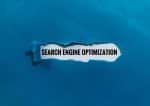Welcome, readers. In a world where everything is becoming smarter, from our phones to our homes, the concept of smart cities is becoming an increasingly hot topic. The term ‘smart city’ refers to an urban area that uses different types of electronic methods and sensors to collect data. Insights gained from that data are used to manage assets, resources, and services efficiently. Yet, the key question remains: Can emerging technologies, such as artificial intelligence (AI), assist in achieving sustainable urban development goals (SDGs)? Let’s dive into this exciting subject.
The Role of AI in Data Analysis and Decision Making
Artificial intelligence is a powerful tool in data analysis and decision making. With AI, vast amounts of urban data can be processed and analyzed to yield actionable insights. This data-driven approach can guide urban planning and development, helping cities become more sustainable and livable.
Also read : How Do Wearable Tech Innovations Improve Athlete Performance and Safety?
In the realm of urban development, AI can be used to optimize resource allocation, reduce waste, and enhance the efficiency of urban services. For example, AI can predict waste generation patterns and optimize waste collection routes, reducing fuel consumption and emissions. In terms of urban services, AI can enable intelligent traffic management systems that reduce congestion and emissions, contributing to cleaner and healthier cities.
AI and Sustainable Energy Management
Energy is a critical aspect of any urban environment. As cities grow and develop, so does their energy consumption. Managing this energy in a sustainable manner is vital for achieving urban SDGs.
Also read : What’s the Potential of Personal Health Data in Improving Healthcare Delivery?
Artificial intelligence can revolutionize the way cities manage their energy. For instance, AI can predict energy demand patterns, optimizing the use of renewable energy sources and reducing reliance on fossil fuels. AI can also help in the design and operation of energy-efficient buildings, further contributing to urban sustainability.
In terms of renewable energy, AI can optimize the operation of wind farms and solar panels, maximizing their energy output. By doing so, AI can help cities transition towards a more sustainable and low-carbon energy mix.
AI, Urban Development, and Climate Goals
Climate change is arguably the biggest challenge of our era. As urban areas contribute significantly to global greenhouse gas emissions, achieving urban SDGs is crucial for addressing climate change.
Artificial intelligence can be a game-changer in this regard. By analyzing climate data, AI can provide invaluable insights for urban planning and development. These insights can guide the design of climate-resilient cities, reducing their vulnerability to climate change impacts.
Furthermore, AI can help cities monitor and reduce their greenhouse gas emissions. Through AI-powered systems, cities can track their emissions in real time, identify hotspots, and take corrective actions. This proactive approach can significantly contribute to achieving climate-related SDGs.
The Environmental Aspect of AI in Urban Development
While AI has a pivotal role in urban development, it’s essential to consider its environmental impact. After all, AI systems require substantial amounts of energy to operate.
However, the environmental footprint of AI can be minimized through energy-efficient algorithms and sustainable IT infrastructure. Moreover, the benefits of AI for urban sustainability can far outweigh its environmental impact.
For instance, AI can reduce the environmental footprint of cities by optimizing resource use and waste management. It can also enhance the resilience of cities to environmental risks, such as floods and heatwaves, through predictive analytics and simulation.
The Future of AI in Sustainable Urban Development
AI holds immense potential for achieving sustainable urban development. As AI technologies continue to evolve, their contribution to urban sustainability is expected to grow.
In the future, AI could enable fully autonomous urban services, from public transportation to waste collection. AI could also facilitate the integration of renewable energy into the urban grid, accelerating the transition towards clean energy.
Moreover, AI could enhance the participatory aspect of urban development. Through AI-powered platforms, citizens could contribute their ideas for city planning, fostering a sense of ownership and community.
In conclusion, AI can assist in achieving sustainable urban development goals in various ways. By harnessing the power of data, AI can guide urban planning, optimize urban services, and enhance the resilience of cities to environmental and climate risks. Through sustainable energy management, AI can help cities transition towards a low-carbon future, contributing substantially to global climate goals. Yet, it’s essential to consider the environmental impact of AI itself, striving for energy-efficient and sustainable AI systems.
In the face of growing urbanization and environmental challenges, leveraging AI for sustainable urban development isn’t just an option – it’s a necessity. So, let’s embrace the power of AI, and let it guide us towards a sustainable and resilient urban future.
Integrating AI with Other Technologies for Sustainable Development
The combination of artificial intelligence with other emerging technologies can significantly enhance the progress towards sustainable development goals. These technologies include Internet of Things (IoT), blockchain, and big data analytics, among others. When integrated with AI, these technologies can form a powerful tool for sustainable urban development.
IoT devices, for instance, can collect a vast amount of data from various urban systems including transportation, energy, waste management, and water supply. When paired with AI’s advanced data processing and predictive capabilities, these devices can help optimize these systems, saving energy and reducing emissions.
Blockchain technology, on the other hand, can bring transparency and accountability to urban governance. It can be used to track and verify sustainable actions like emission reductions or renewable energy generation. By incorporating AI, the efficiency and effectiveness of these actions can be significantly augmented.
Moreover, merging AI with big data analytics can help in monitoring and managing the urban environment in real time. This could mean swift responses to pollution episodes, real-time tracking of waste generation and disposal, and proactive management of urban green spaces.
This fusion of AI with other technologies can also contribute towards other United Nations’ SDGs, such as good health and wellbeing, gender equality, and decent work and economic growth. By improving the efficiency of urban services and creating a cleaner, safer urban environment, AI can enhance the quality of life for all city dwellers, irrespective of their gender or socio-economic status.
Conclusion: AI – A Key Enabler of Sustainable Urban Development
In conclusion, artificial intelligence is undoubtedly a key enabler in achieving sustainable urban development goals. From data analysis and decision making to sustainable energy management and climate action, AI presents a multitude of applications for making our cities smarter and more sustainable.
By integrating AI with other technologies such as IoT, blockchain, and big data analytics, the path towards sustainable cities can be made easier and more efficient. However, it is critical to ensure that the AI systems themselves are developed and operated sustainably, with minimum environmental impact.
In addition to achieving environmental sustainability, AI can also play a role in promoting other UN SDGs, such as good health, gender equality, and economic growth. With its potential to improve urban services and quality of life, AI can contribute to making cities inclusive, safe, resilient, and sustainable.
As we continue to grapple with the challenges of climate change and rapid urbanization, the need for sustainable solutions becomes ever more urgent. Therefore, leveraging the power of AI for urban sustainability is not just a desirable option, but a pressing necessity.
Let us, therefore, embrace this powerful tool and harness its potential for creating a sustainable and resilient urban future. The journey towards sustainable urban development is a long one, but with AI, it seems a little less daunting.











